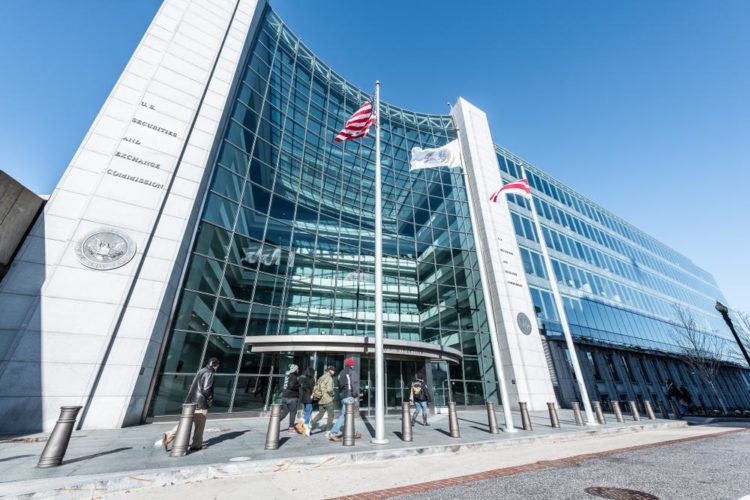- The SEC alleges these individuals were running a standard pyramid and Ponzi scheme.
- Forsage has also had issues with authorities in other regions.
The US Securities and Exchange Commission (SEC) has charged 11 persons in court for their role in creating and promoting the Forsage platform. The SEC deemed Forsage to be a fraudulent crypto Ponzi scheme. The US financial regulator filed the lawsuit at an Illinois US District Court on August 1, 2022.
The SEC alleged that Forsage’s founders and promoters had acquired over $300 million from their “investors” globally. According to the court filing, SEC claims that Forsage’s model was to recruit investors and ask them to recruit others into the platform for specified financial rewards.
This model is the typical structure of any Ponzi scheme, and Forsage’s operations have expanded beyond the US to other nations such as Russia. The SEC defines a Ponzi scheme as investment fraud where an investment platform pays current investors with funds from new investors. These Ponzi schemes often entice new investors with the promise of helping them invest their funds in high ROI opportunities with almost zero risks.
The SEC’s court filing reads,
the Forsage platform has no real consumable product to sell to any genuine retail client or intention to sell one. Also, it has no verifiable revenue source. Rather, its revenue source has been the funds from investors. Also, it has been using these funds to pay other newly recruited investors.
The US Financial watchdog further states that Forsage first asks its new investors for a crypto asset wallet. Then, buy ‘slots’ from the platform’s smart contracts. Through these slots, the investors now have the right to receive financial rewards from the platform when they recruit new investors into the scheme.
These recruits are called downlines. They also earn from what the platform calls ‘spillovers.’ Spillovers are profits shared within the Forsage investor community. SEC’s Carolyn Welshhans, who heads the regulator’s Crypto Assets and Cyber unit, alleged that Forsage is a fraudulent Ponzi scheme with extensive reach through aggressive marketing by its promoters.
Welshanns added that it is impossible to use blockchain technologies to escape fraudulent activities. “Fraudsters are wrong if they can think they can build their Ponzi schemes with blockchain technology and smart contracts to skip federal Securities laws.”
She further said that aggressive marketing had helped Forsage to develop on a massive scale in the past two years. Thus, attracting more investors as its popularity grew during that period. The 11 persons charged to court by the SEC include four founders and seven promoters.
Related: BitConnect former director admits to conspiring with other executives on Ponzi Scheme
The founders are Sergey Maslakov, Vladimir Okhotnikov, Mikhail Sergeev, and Jane Doe (also called Lola Ferrari). Three of the accused promoters are members of the crypto crusaders group, a Forsage promotional group based in the US.
The SEC alleges that these persons violated sections 5 A & C of the unregistered offers and sales of Securities of the US Securities Act. It also charges them with Fraud under section 17(A) (1 & 3) of the same Act and Section 10 B-C of the US Exchange Act.
Forage’s issues with regulators in other regions
It is worth noting that Forsage isn’t only having issues with the US SEC. It has had similar brushes with the law in other regions. The Philippines SEC slapped a cease-and-desist order against Forsage in September 2020. Also, Montana’s commissioner for Securities and insurance hit the “investment platform” with another cease-and-desist order in march 2021.
The platform’s social media accounts appear active. Its YouTube channel still promoted its investment plans ten days ago. Likewise, it’s official Twitter handle. Forsage has yet to issue any official statement on the matter and hasn’t responded to media queries.
Credit: Source link













































































































































